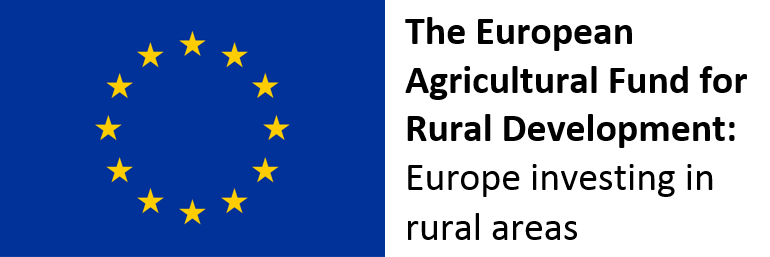Objectives and goals of the funding programme
The European Globalisation Adjustment Fund for Displaced Workers (EGF) is a special EU instrument to express EU solidarity with European workers or the self-employed that were displaced due to restructuring, and to help them find new jobs.
The EGF contributes to the creation of a more dynamic and competitive European economy by improving the skills and employability of displaced people, to help them find better work.
The EGF helps low-skilled and disadvantaged jobseekers deal with new challenges on the labour market.
As a rule, the EGF can be activated when a single company lays off over 200 workers, by SMEs in various sectors in the same region or in a particular sector in one or more neighbouring regions.
Type of Programme
European Globalisation Adjustment Fund for Displaced Workers (EGF)
Funding type/type of support
Financing (Loans/Guarantees)
Organizational level
International
Programme Focus
Competitiveness, research and innovation, Crisis recovery, Skills, Smart / digital tourism, Sustainable tourism
Programme relevant for/ target group
Natural persons (private individuals)
Geographic area
European Union
The EGF has an annual budget of €210 million for 2021-2027. It can fund from 60% to 85% of the cost of projects designed to help workers made redundant find another job or set up their own businesses.
It can fund from 60% to 85% of the cost of projects designed to help workers made redundant find another job or set up their own businesses.
Individual workers made redundant can benefit from EGF projects. This includes self-employed, temporary and fixed-term workers.
The EGF does not provide support to help companies stay in business, modernise or restructure.
The EGF adds to existing job market assistance services by providing personalised measures for the unemployed.
The EGF can co-finance measures such as:
- Help with looking for a job;
- Career advice;
- Education, training and re-training;
- Mentoring and coaching;
- Entrepreneurship and business creation.
It can also provide training or subsistence allowances or similar support, including allowances for careers, mobility and relocation allowances, and employers’ recruitment incentives.
The EGF does not co-finance social protection measures such as pensions or unemployment benefits.
The EGF has no tourism specific component. However, it is open to various sectors and can support workers dismissed by tourism businesses or self-employed individuals (previously) active in the tourism industry. It does so through supporting measures that help train displaced workers, upgrade their skills, or help them start businesses.
Moreover, it can support measures in tourism, such as vocational training courses for displaced workers according to their needs, apprenticeships to learn new professional skills and practical knowledge directly on-the-job, and business start-up subsidies with follow-up support.
The European Globalisation Adjustment Fund (EGF), launched in 2007, helps people find new jobs through further education or training or helps them start their own business. Originally created to support workers who lost their jobs because of large-scale restructuring triggered by systemic globalisation changes, its scope was broadened over the years.
The EGF now helps workers let go during larger scale restructuring events, no matter the cause. At the request of the EU country concerned, the EGF co-finances job search support, career advice, further training, retraining, coaching and entrepreneurship, and to a certain extent, allowances that enable participants to take part in the measures.
The COVID-19 pandemic has put tourism-dependent businesses across the EU in an unprecedented situation. The EGF can help workers and self-employed people in European countries who lost their job.
- Project: EGF/2014/003 ES Aragon
The crisis severely affected employment in the region of Aragón, Spain. The unemployment rate in the region has increased rapidly. The food and beverage service sector was traditionally considered a safety net at times of scarce employment, as jobs in the food and beverage sector were easy to find, mainly since these jobs have demanding work schedules that are difficult to reconcile with family life.
Yet, even the food and drink service sector suffered because of the financial and economic crisis, resulting in redundancies that harmed the regional economy. Given the relevance of tourism-related food and beverage activities in Spain, the EGF’s impact on the beneficiaries was considered sustainable since staff could probably be re-hired to a certain degree.
EU contribution: €960,000
- Project: EGF/2014/018 EL Attica Broadcasting
Intensive counselling helped several people pivot to fields outside of journalism and broadcasting. Since this sector is in serious decline in the Attica region of Greece, many people were willing to change careers and participate in marketing, tourism activities, cooking, cosmetics, or other training.
One of the measures for the tourism sector covered by this fund was training, retraining and vocational training. It consists of vocational training courses for workers that fit their needs, identified during occupational consultancy, in areas and sectors with development prospects corresponding to labour market needs. The two types of training are offered either as continuous vocational programmes or specialised training or educational programmes.
EU contribution: €5,046,000
- Project: EGF/2020/002 EE/Estonia Tourism
The mass redundancies in the Estonian tourism industry affected all of industry and the national economy. Tourism contributes to national economic growth and competitiveness and is an important source of employment. As the redundancies happened during the same timeline and involved workers with similar backgrounds in highly intertwined sectors that all fall under tourism, addressing them with one EGF application reduces administrative burden and leverages cooperation.
EU contribution: €4,474,480
